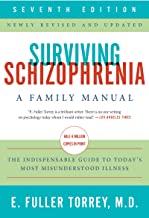Schizophrenia
Cluster Number:
Wiki Number: PW195
Diagnosis: Schizophrenia
US Patients: 1.1% of the population;Life expectancy decreased by 20 years; sedentary life leads to heart attacks;
World Patients: 20 million total cases; 16.7 Million-disabled due to schizophrenia, 75% unemployed; Violence-6X population; with alcohol-24X.
Sex Ratio: M+;F
Age Onset: M-early 20’s; F-late 20’s and post-menopausal in women. Psychosis (reality-unreality) often preceeds schizophrenia.
Brain Area: dopamine controls positive motivations; genes CRHR1 and CRHBP relate to suicidal behavior, several brain areas involved
Symptoms: Hallucinations, delusions, disorganized thinking, withdrawal, apathy, weak emotions, word salad; cognitively poorer generally
Progression: Usually non-violent; more likely to be victims,unless using alcohol or drugs.
Causes: 70-80% heritable; raised in city, older parents, drugs or pot used as teenager, several factors during pregnancy; childhood traumas
Medications: antipsychotics, hospitalization to stop harm to self or others, many create restlessness, muscle-jerking, weight gain
Therapies: exercise, CBTs, other talking therapies, along with medications, ½improve, some get well; the other half, life-time involvement.
Youtube Video: How Paranoid Schizophrenia Impacts My Life
Youtube Video: What is Schizophrenia?
Amazon or Library Book: Surviving Schizophrenia
Click the book to link or order from Amazon.

